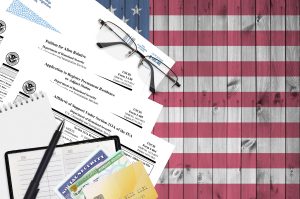Have you ever wondered about how the current American immigration system came into being? Today’s blog post is intended to give you a short history of American immigration laws. It’s fascinating to see how these policies have evolved over time. At BestImmigrationLawyer.com, we think you’ll find it quite interesting to learn about the history of our nation’s immigration system.

Let’s start with the early days. Back in the 18th and 19th centuries American immigration was pretty much a free-for-all. People from all over Europe were arriving in the United States seeking new opportunities and a better life. For the most part, there were no restrictions on who could come in to the country and immigration was seen as a way to boost the population and the workforce. However, as the country grew and changed, so did the attitudes towards immigration. The first major immigration law in the United States was the Chinese Exclusion Act of 1882 which was signed into law by President Chester A. Arthur. This act was pretty much what it sounds like—it prohibited Chinese laborers from immigrating to the US for ten years. Shamefully, this law came into being because there was a lot of anti-Chinese sentiment and prejudice during that time, fueled by fears of job competition and the belief that the Chinese were “unassimilable.” But the Chinese Exclusion Act was just the beginning.
In the early 20th century, the nation saw the introduction of a quota system with respect to immigration. The 1921 Emergency Quota Act and the 1924 Immigration Act put numerical limits on immigration and favored people from Western and Northern European countries. These laws were rooted in a desire to maintain the country’s ethnic and racial makeup, and they discriminated against people from Southern and Eastern Europe, as well as other parts of the world.
 Immigration Lawyer Blog
Immigration Lawyer Blog






